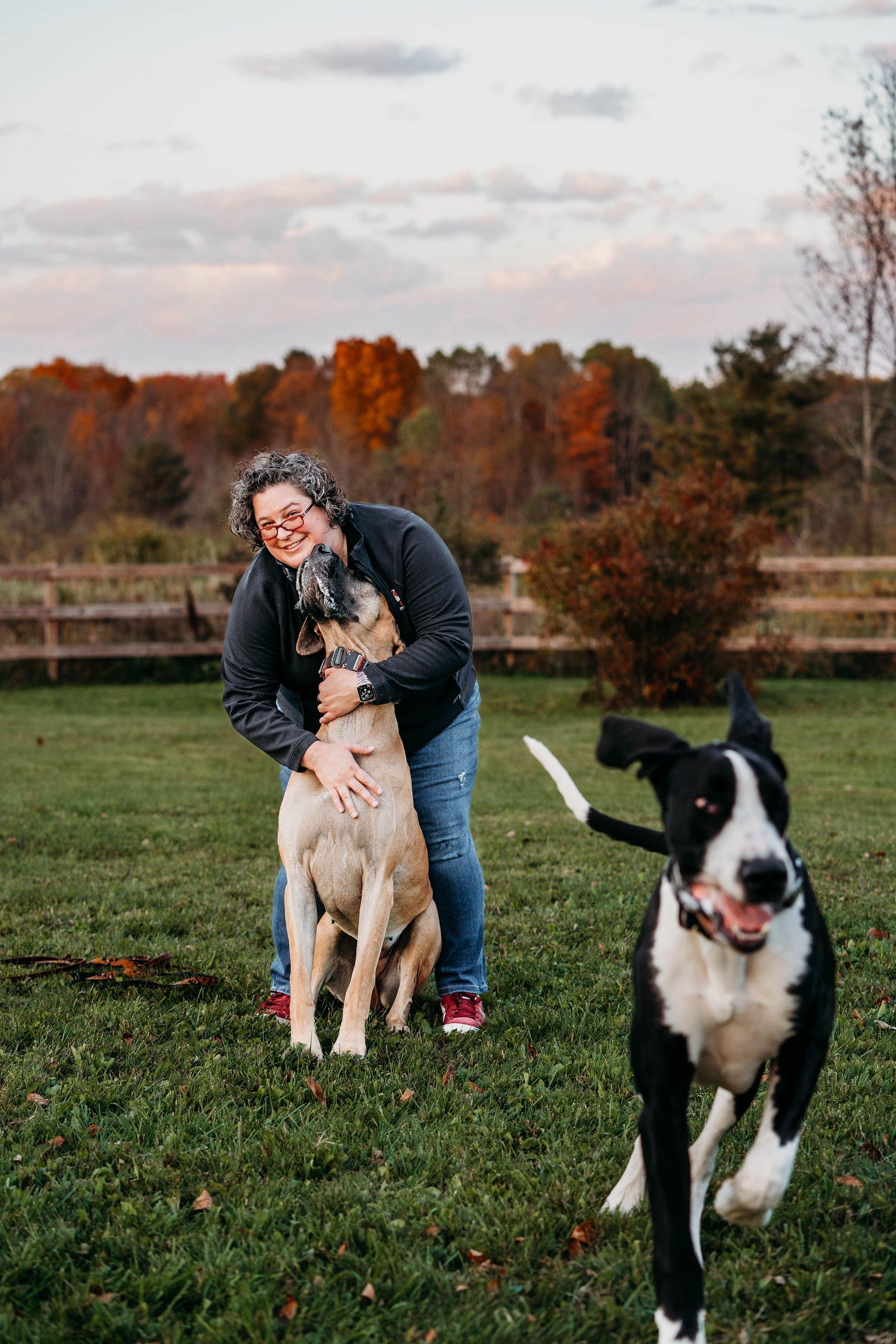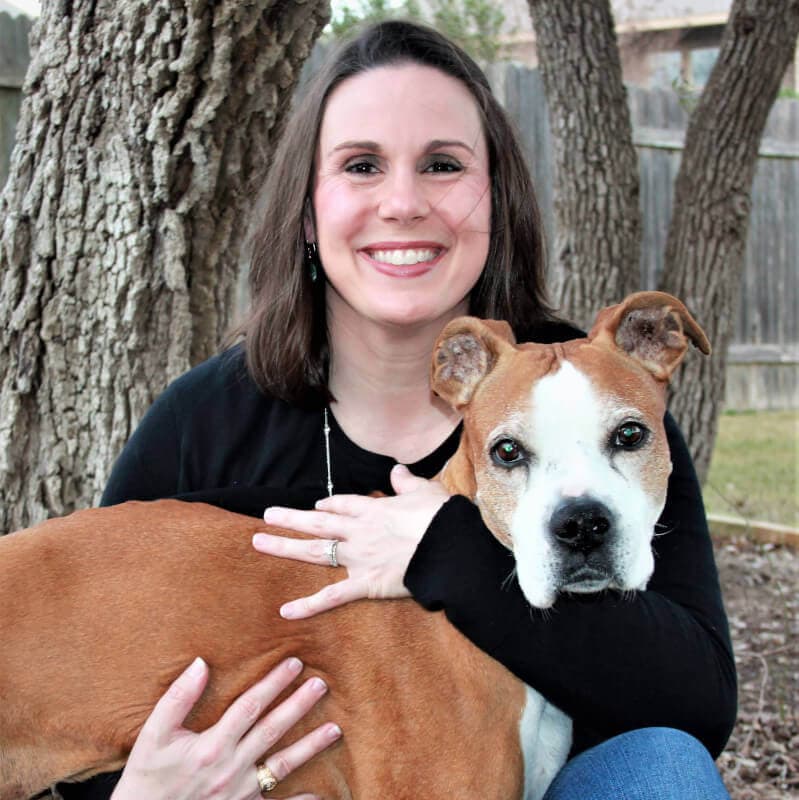Feeding Your Dog Right: The Best Food & Nutrition Advice from Veterinarians
Dog nutrition can be a contentious topic, as many people have varying views on how to keep our canines as healthy as possible. You’ve already made the first step by looking into the matter, so you’re obviously a caring and responsible pet owner. At GeniusVets, we firmly believe that petcare information should come from veterinarians and not from “Dr. Google.” That’s why we’ve taken the most common questions on dog nutrition, sent these questions to renowned veterinarians, and compiled their replies to get you information that you can trust when it comes to your dog’s nutrition.
While all of the dog nutrition information and recommendations below have been sourced directly from leading veterinarians across the country, please make sure to seek your veterinarian’s advice or find a trusted veterinarian near you using the GeniusVets Directory.
What food should I feed my dog?
As veterinarians, we understand that dog nutrition can be very confusing right now with so many different companies in the market and such a wide variety of marketing strategies. When you're making a dog food selection, you must stick with the bigger companies that have veterinary nutritionists on staff. This ensures that the food is safe and will not harm your dog or have any nutritional deficiencies.
You also want to feed according to life stage, from puppy to adult to geriatric dog. Dogs are ideally still nursing from their mom when they’re puppies. We may have to transition to a liquid, if not a wet food diet. And this food should be calorie-rich, which is vital for puppies who are no longer nursing. (Continued information to follow! This blog will help you understand your dog's nutritional needs for different life stages!)
The essential nutrients for dogs are very similar to those needed by humans:
You may have heard that you should choose a grain-free diet, as it’s been a myth circulating in the past few years. The truth is that those grains, or carbohydrates, are an essential part of a dog’s diet
Let's Talk About the Best Dog Food Options
Your dog’s nutrition isn’t just about filling a bowl—it’s about fueling their body, supporting their health, and ensuring they live a long, happy life. With hundreds of dog food brands on the market, we know how overwhelming it can be to choose the right one.
That’s why we’ve done the homework for you! We’ve researched top-rated dog food options, from fresh, human-grade meals to premium dry formulas. Whether you need high-protein recipes, skin and coat support, or a vet-approved staple, we’ve got you covered. Below, you'll find a breakdown of the best dog food options, plus our top recommendations for your pup’s health.
Top Dog Foods: Nutritious and Delicious Options for Your Dog
Every dog is unique, so finding the right food means looking at quality ingredients, nutritional benefits, and digestibility. Here’s a closer look at some of the best options available and what makes them stand out.
What brand of dog food is best?
When choosing dog food, you first need a reliable source for your information. Veterinarians are your best option. We follow nutrition, and we have specialists that we can always consult with about dog food. The second thing is to find a company that you believe in.
Most dog food brands have at least some beneficial components. Some companies do more research than others to make sure their diets are formulated appropriately, giving them the advantage of being evidence-based. In fact, some dog food companies have nutritionists and toxicologists on staff, ensuring that they know how to formulate food for older dogs with kidney and other issues. At any given time, we can call these specialists and ask them questions about our patients’ needs. Some companies also offer prescription diets that are formulated for specific medical conditions.
Three companies that most if not all veterinarians will tell you are excellent dog food sources are Purina, Royal Canin, and Hill’s Science Diet Pet Food. If you’re getting your food from your veterinarian, Purina can also be a good option.
Recommended Products for Dog Nutrition
There are countless brands, protein options, and varieties of dog food available today. That’s why talking with your veterinarian about what’s right for your individual dog is essential. Below are products that many veterinarians agree are safe and beneficial choices currently on the market.
Dog Food
Choosing the right dog food supports your pup's health, energy, and longevity. Always consult your veterinarian before making major changes to your dog’s diet.
The Farmer's Dog – Human-grade meals made fresh and delivered to your door. A highly personalized approach to pet nutrition.
Blue Buffalo – Chicken and Brown Rice – Real chicken is the first ingredient in this natural, antioxidant-rich formula.
Blue Buffalo – Fish and Brown Rice – A fish-based recipe that supports gentle digestion and healthy skin.
Purina One – Chicken and Rice – A vet-recommended blend with added vitamins and minerals for daily health.
Blue Buffalo – Beef and Brown Rice – Wholesome beef protein mixed with brown rice and essential nutrients.
Purina One – Skin and Coat – Specially formulated to support sensitive skin and a shiny coat.
Blue Buffalo Health Bars – Crunchy, oven-baked treats made with real ingredients and no artificial flavors.
Dog Food Comparison
| Product | Form | Highlights |
|---|---|---|
| The Farmer's Dog | Fresh Food | Human-grade, freshly prepared meals delivered to your door |
| Blue Buffalo – Chicken and Brown Rice | Dry Food | Natural formula with chicken and brown rice for overall wellness |
| Blue Buffalo – Fish and Brown Rice | Dry Food | Protein-rich fish with whole grains and garden veggies |
| Purina One – Chicken and Rice | Dry Food | Veterinarian-recommended recipe for energy and immune support |
| Blue Buffalo – Beef and Brown Rice | Dry Food | High-quality beef with wholesome grains and antioxidants |
| Purina One – Skin and Coat | Dry Food | Formulated for skin sensitivity and shiny coat |
| Blue Buffalo Health Bars | Dog Treats | Oven-baked treats with natural ingredients |
Top Picks for Dog Food
- The Farmer's Dog – Best for personalized, fresh meals.
- Blue Buffalo Chicken & Brown Rice – Best overall dry food.
- Purina One – Skin & Coat – Best for dogs with skin sensitivities.
What happens if my dog isn't getting the right nutrition?
If a dog isn't getting the right nutrition, you might notice some changes like weight loss, weight gain, or even a lack of energy. A dry coat can also be a sign that they’re missing out on essential minerals and oils in their diet. If you see any of these signs, it’s really important to take your dog to the veterinarian. This way, we can figure out together whether it’s a nutritional deficiency or if there’s something else going on.
Does my adult dog need different food than my puppy?
Yes, much like humans, as dogs age their nutritional and dietary requirements also change. We have interviewed dozens of veterinarians from across the country to gather recommendations right from the experts, and while even expert opinions do vary somewhat, the recommendations below represent a trustworthy consensus.
We break the dog life stages down into three categories:
First, we have the puppy lifestyle when they’re rapidly growing. Their energy needs are high, so those puppy foods will be higher in protein and higher in carbohydrates. Then, we have our middle-aged dogs that are not growing anymore. They generally don't have any disease states going on. And that's the regular age group that's simply referred to as the adult dog stage. Lastly, we have senior foods, which are generally lower in protein, phosphorus, and calcium, and may also contain joint supplements. Animals reach senior “status” at different ages based on breed and size. For instance, a Great Dane may be considered elderly at six or seven, while a tiny poodle may be regarded as elderly when they're 12 and older.
We would not recommend food called “all life stages” because it would be over the amount of protein and calcium for an older dog. And if you were to feed a puppy the more senior food, it would not have enough calories and proteins for their needs, so there are three different and distinct life stages.
How do I wean my puppy and get them on regular food?
By the time puppies are four or five weeks old, they can start weaning off their mother's milk. At this point, it’s not ideal to transition puppies to a liquid diet. Instead, puppies should slowly transition to a wet food diet, as it has a lot of moisture in it, and it’s easy for them to eat. If you go with hard food, wet it down with some water. And we want to gradually get them on an entirely commercial diet. These transitions will be critical throughout the dog’s life, and any time you do so, you want to do so gradually so that you don’t shock their systems.
Should I feed my dog on a schedule?
We recommend feeding puppies, in particular, on a schedule. You can monitor how much they eat. You can make sure that they don't play hard and fall asleep and then forget to have lunch. We recommend that puppies have breakfast, lunch, and dinner to keep their blood sugar at optimal levels, especially the smaller or toy breeds. The other thing about scheduled eating for puppies is it’s also generally easier to get them housebroken if they are on a schedule.
When dogs are older, and we're not trying to get them housebroken, it is typically okay to leave food down for them all day as long as they're the type of dog that likes to nibble here and there. However, dogs that gorge themselves whenever they have access to food need specific meals and mealtimes. If not, we will run into situations like bloat or obesity. If that were to happen, it’s necessary to feed overweight dogs specifically designed meals, so they do not get too many calories in a day.
Supplements, Probiotics, and Chews Comparison
Supplements can enhance your dog's mobility, digestion, skin health, and immune strength. Always check with your veterinarian before starting a new supplement.
Pet Honesty Probiotics – Digestive support chews with probiotics and natural ingredients to ease GI upset and promote immunity.
Nutramax Cosequin – Trusted joint health formula with glucosamine and chondroitin for long-term mobility support.
Nutramax Denosyl – Liver and brain health tablets ideal for dogs with aging-related concerns or liver support needs.
Vetnique Glandex Soft Chews – Targets anal gland function with pumpkin, probiotics, and fiber to reduce scooting and discomfort.
Dog Supplement Comparison
| Product | Form | Highlights |
|---|---|---|
| Pet Honesty Probiotics | Probiotic Chews | Supports digestion and immune health with natural ingredients |
| Nutramax Cosequin | Joint Supplement | Veterinarian-recommended joint health formula |
| Nutramax Denosyl | Liver Support Tablets | Promotes liver and brain health in dogs |
| Vetnique Glandex Soft Chews | Digestive Support Treats | Supports anal gland health with pumpkin and fiber |
Top Picks for Dog Supplements
- Pet Honesty Probiotics – Best for overall digestive support.
- Nutramax Cosequin – Best joint supplement for active or senior dogs.
- Vetnique Glandex – Best for reducing scooting and supporting gland health.
How do I know if I'm feeding my dog too much?
It’s an excellent idea to have your veterinarian assess your dog based on what's called body condition score, so we'll feel their hips and their ribs, and we’ll ask you how they're doing at home. Are they lethargic? Do they get winded quickly? Those things may tell us if they're overweight. On the other hand, if we can feel the ribs prominently and their hips stick out, they might not be getting enough food.
A dog should be rounded if you look straight down on them from the top. They shouldn't be squared off. And if you look at a dog from the side, their tummy should be tucked up instead of sagging down..
How will a veterinarian be able to assess if my dog is getting proper nutrition?
One of the reasons we recommend that all dogs have an annual wellness exam is to assess their nutrition. It's also an ideal time to talk about their weight, look at their teeth, listen to their heart and lungs, check their hair coat, and assess their mucous membrane color and the shininess of their eyes. In addition, we will ask you many questions about their behavior and lifestyle at home. We may make some recommendations on things that need to change at home, particularly as your dog gets older. For example, your dog may be on a wet food diet, but we may ask that you transition them to dry food or kibble to break up dental tartar. Lastly, we do annual blood work to make sure organ function is optimal.
We make sure to keep an accurate weight history on your animal, which is another thing we’ll look at during this yearly exam. We’ll do that body condition scale as well to make sure that your dog’s nutrition is adequate.
When would my dog need a prescription diet?
There are many times in a dog's life that they may need a prescription diet. For instance, a diabetic dog might need a diet higher in protein and lower in carbohydrates. Other prescription formulas, also known as therapeutic diets, are for dogs with gastrointestinal problems, vomiting, and diarrhea, as they are easy to digest. When they're older, and their kidneys are not working as well as they should, some dogs may need a special diet. We may also recommend a diet with glucosamine and chondroitin to lubricate your dog’s joints. Lastly, there are some prescription diets for overweight or diabetic patients.
Going to the veterinarian regularly and trusting your instincts based on your dog’s behavioral changes will help you assess the need for a prescription diet.
The Right Nutrition for a Healthier Dog
Feeding your dog the right food and adding beneficial supplements isn’t just about keeping them full—it’s about giving them the best chance at a long, happy life. Whether you choose fresh food, premium kibble, or targeted supplements, the best choice is one that supports their specific health needs.
The American Veterinary Medical Foundation (AVMF) is another wonderful resource for pet nutrition. iIf you have any other dog nutrition questions, we are happy to help you find a local veterinarian!
The Following Veterinarians
Contributed To The Dog Nutrition Information On This Page


The Ultimate Guide
to Dog Care
This free guide is an indispensable manual for dog ownership. Filled with veterinary advice and recommendations on every important topic at each stage of your dog’s life, this is all the stuff that responsible dog owners need to know. That is why we are making it free!






